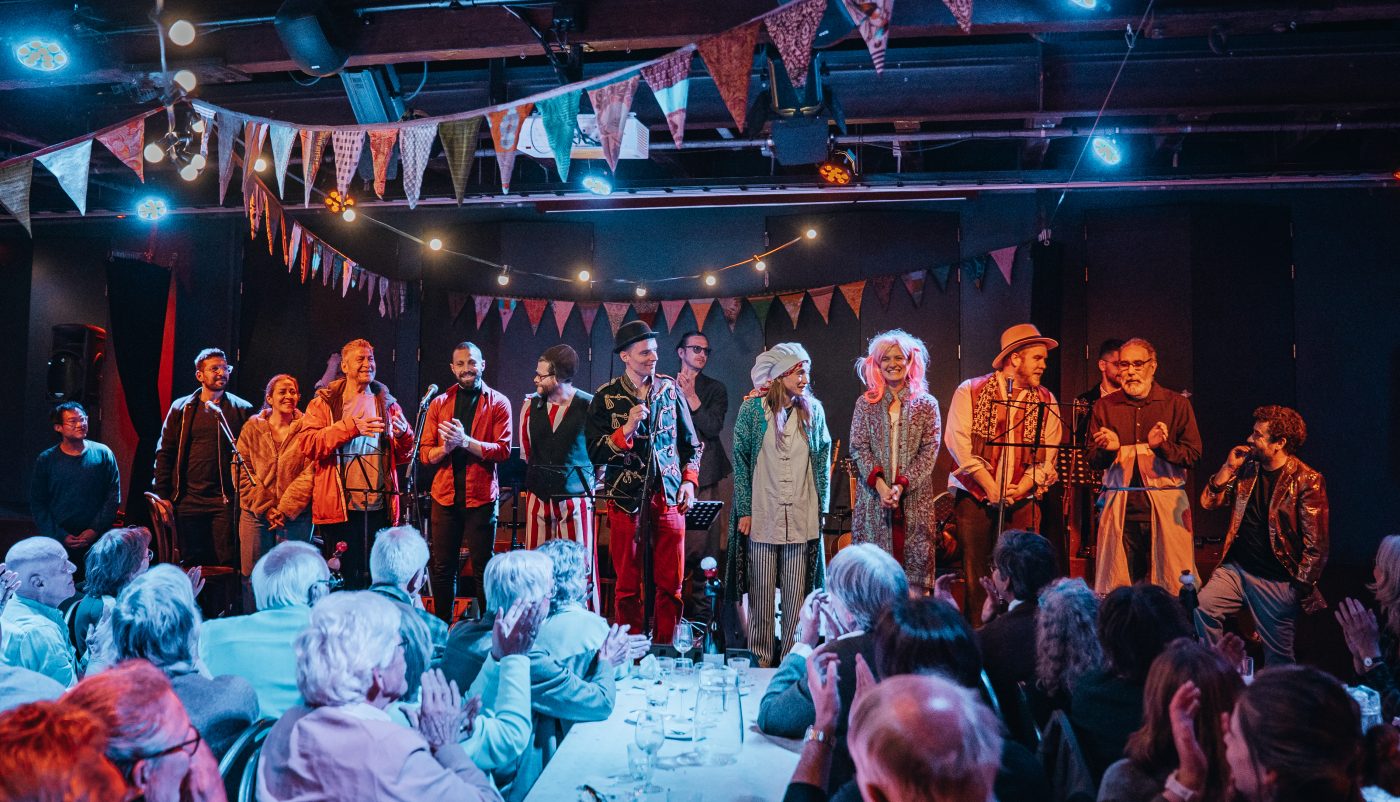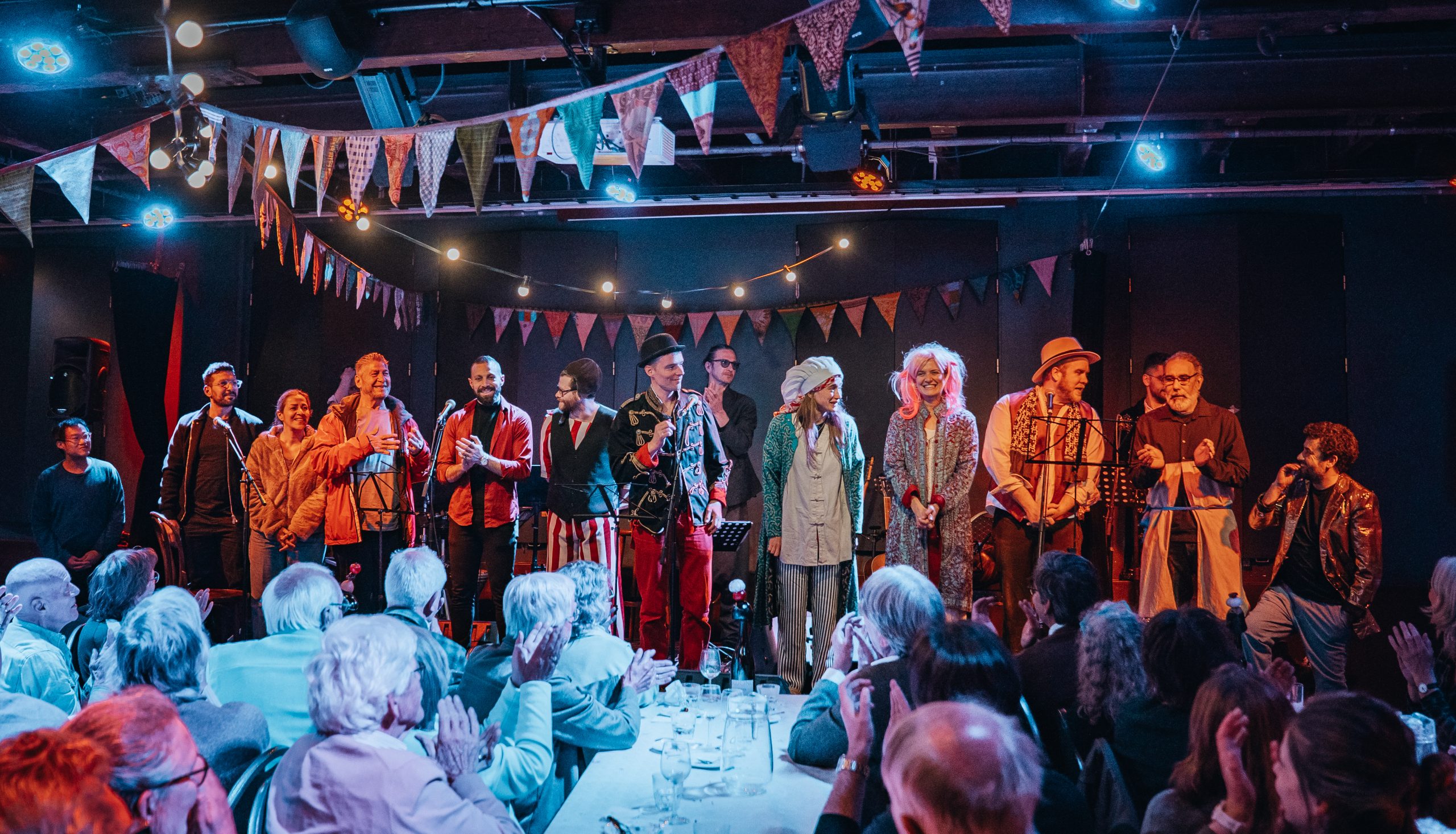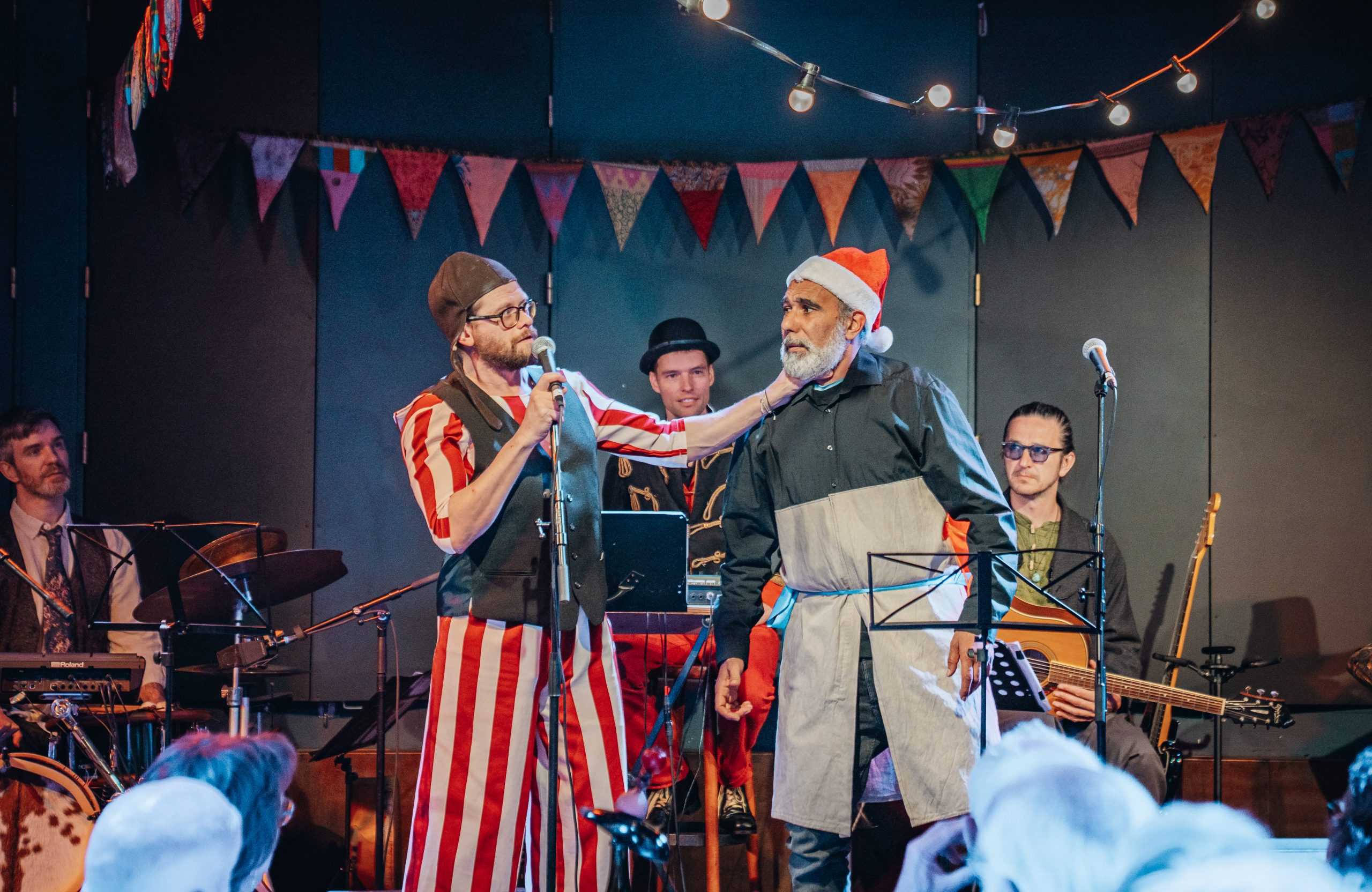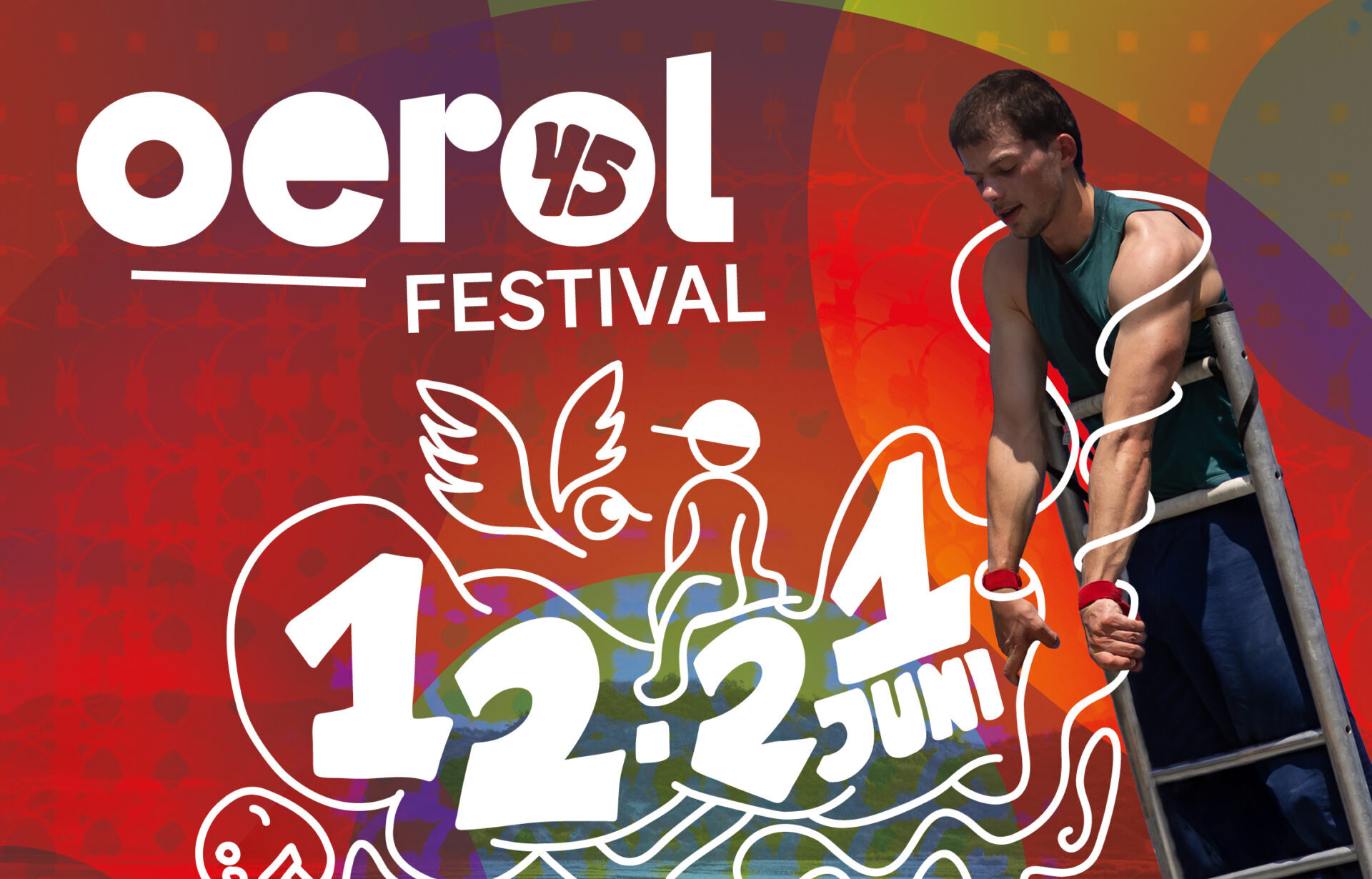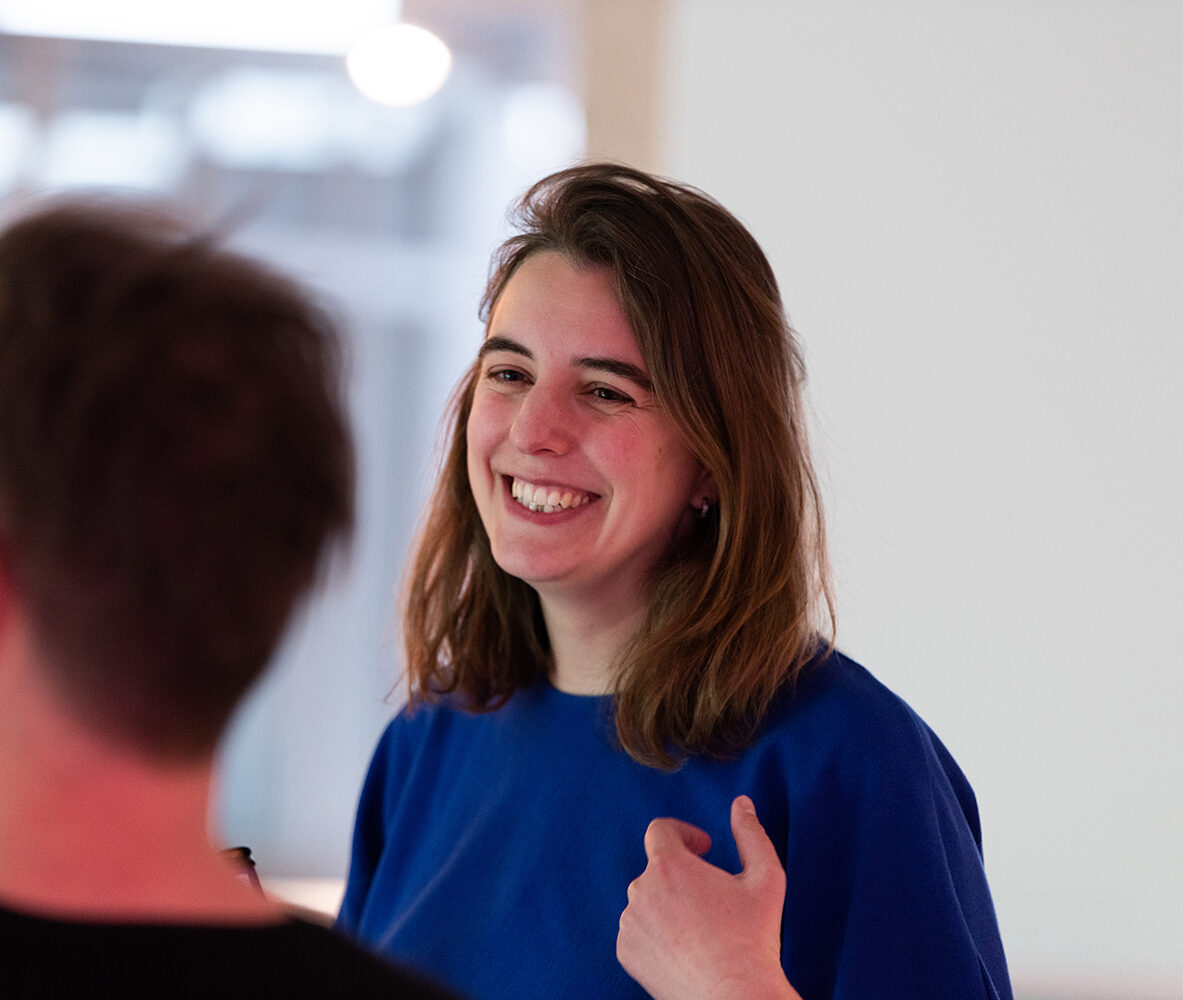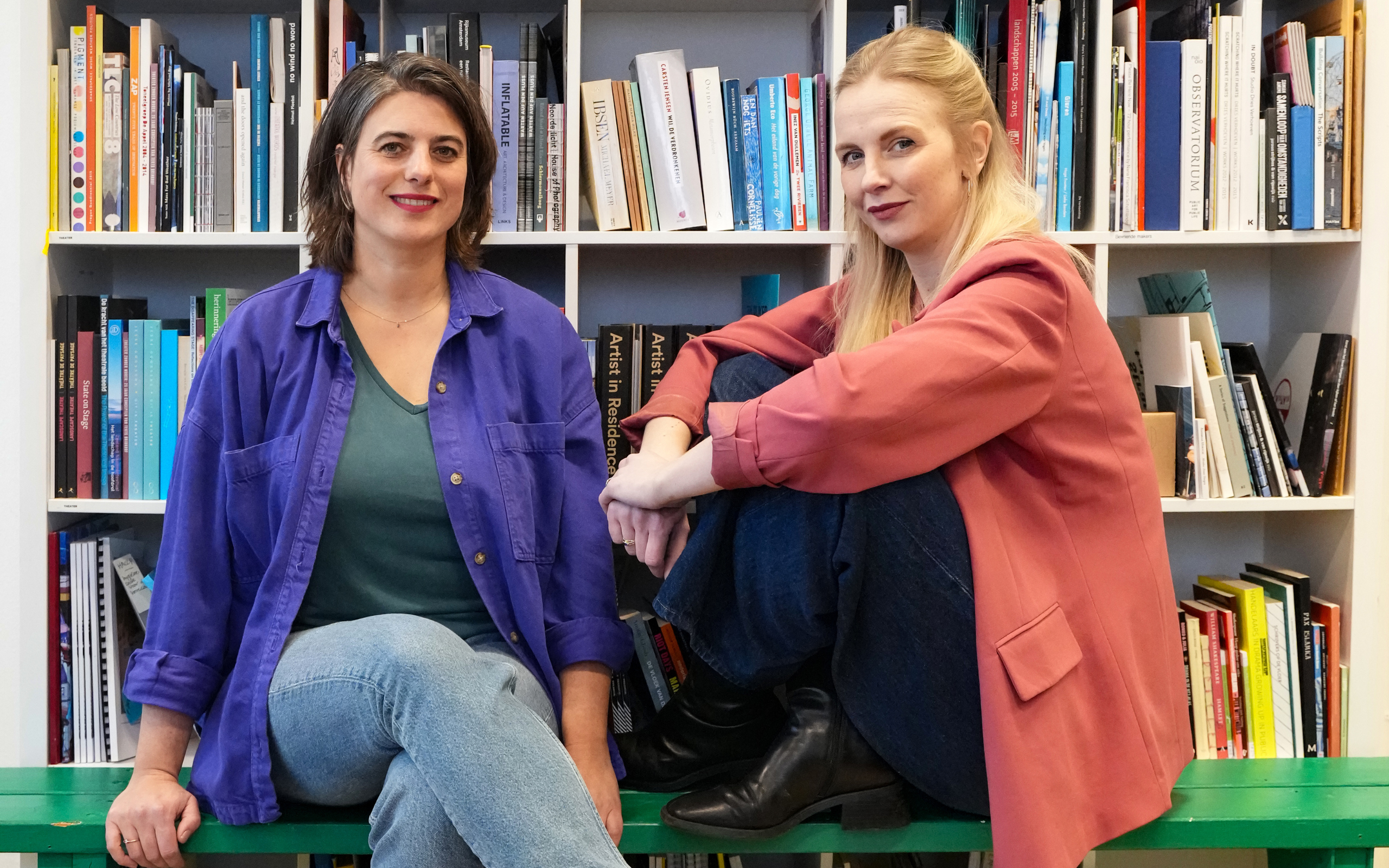De Clown, the controversial satirical play written by renowned Syrian poet Muhammad al-Maghut in 1963, explores the power of humor and satire, and the resistance hidden within a joke.
Al-Maghut is the great-uncle of Ghaeth Almaghoot, who fled Syria over a decade ago and is now building a career as a musician and performer in the Netherlands. He performs with music theatre company Veenfabriek, the Leiden-based ensemble currently delving into the concept of “foolosophy.” Together with Almaghoot, they bring The Clown to this year’s Oerol Festival.
Humor as a form of protest
At the heart of the play is a remarkable encounter between a travelling clown and Saqr Quraish, the conqueror of Andalusia, who mourns the decline of the Arab world and the loss of Palestine.
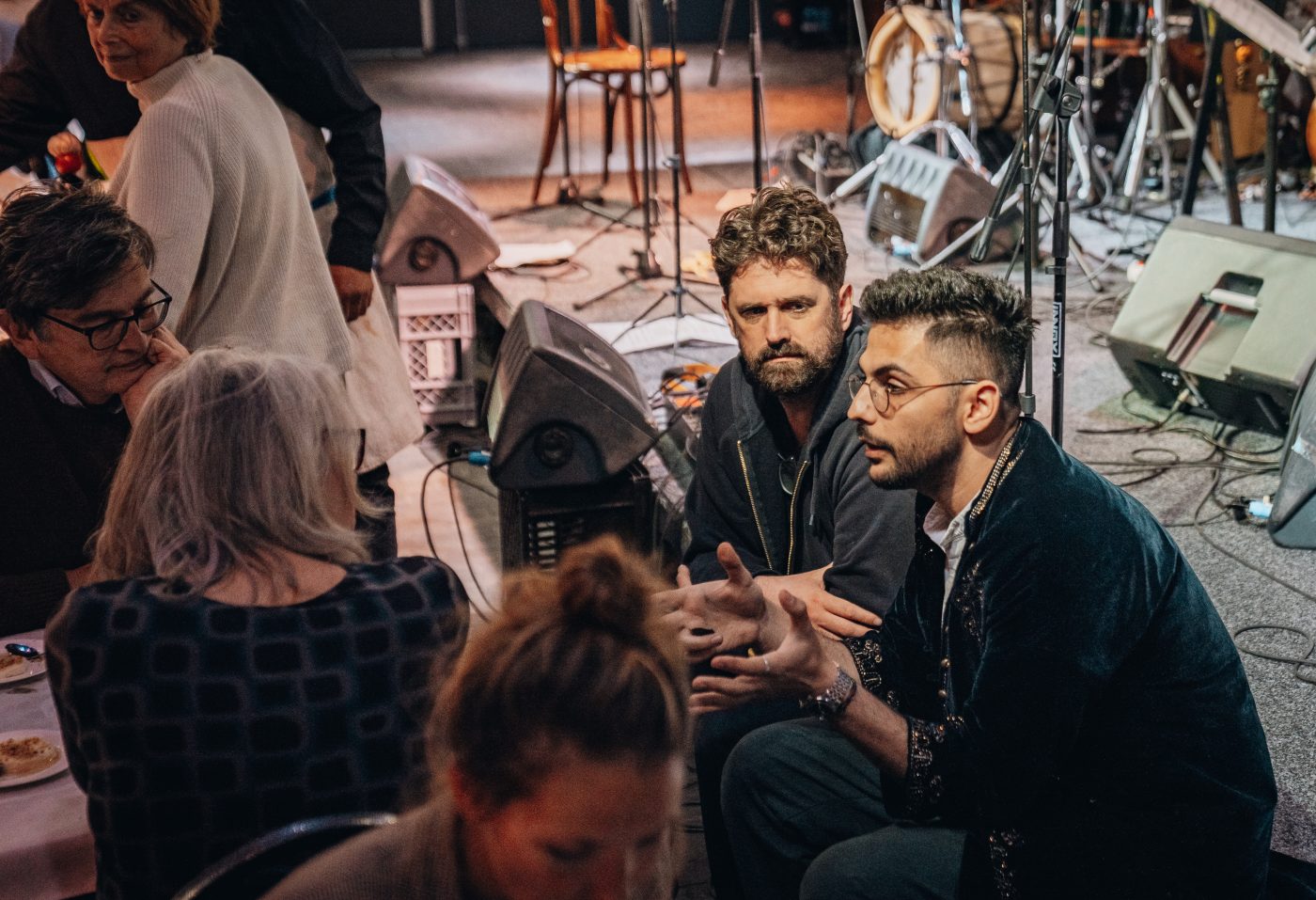
For his great-uncle, humor and satire were tools to awaken the oppressed, Almaghoot explains. “He used dark humor as a form of protest. You laugh at a joke, but immediately afterward you think: how tragic.”
In times of censorship, artists seek ways to covertly communicate their message, he says. “For those who were truly listening, he delivered criticism of the dictatorship between the lines. Because although dictatorships are often run by powerful people, they’re usually not very intelligent.”
Even when terrible things happen, jokes can offer comfort or courage Joeri Vos, director De Clown
A play of urgency
Censorship is something artists in the Netherlands also have to deal with, says Almaghoot. “Of course, it’s different: in Syria you’re thrown in prison if you say something the government doesn’t like. But here in the Netherlands, similar mechanisms are at work in a more subtle way. As long as an artist aligns with the government’s desires—sings the song they want to hear—you’ll get more opportunities and platforms to show your work.”
That’s exactly why De Clown is such an urgent piece, in his view. “It confronts us with the question: how free are we really? How much space do we have to express ourselves? Can we truly say everything we want to say?”
Important questions, delivered in De Veenfabriek’s musical production by seven actors and five musicians. As in their previous Oerol shows Pinokkio and World van Wie, food plays a central role during the performance: this time, five chefs will serve a freshly prepared Arab meal on-site.
A glimpse of hope
According to director Joeri Vos, humor is a way to make painful issues discussable. “Even when horrible things happen—like in Gaza—I believe humor and jokes can offer solace or give strength. I hope audiences will reflect on that afterwards. Theatre can’t solve the world’s problems, but maybe it can offer a glimmer of hope: like a single tear on a hot plate.”
Ghaeth Almaghoot agrees: “I hope people leave the performance with full bellies and big smiles, but also with a few unanswered questions to chew on.”
De Clown will be performed at Oerol 2025. Tickets are now available. Each performance includes a meal (lunch or dinner).
In the second episode of the Oerol Podcast, Dide Vonk visits Veenfabriek.
